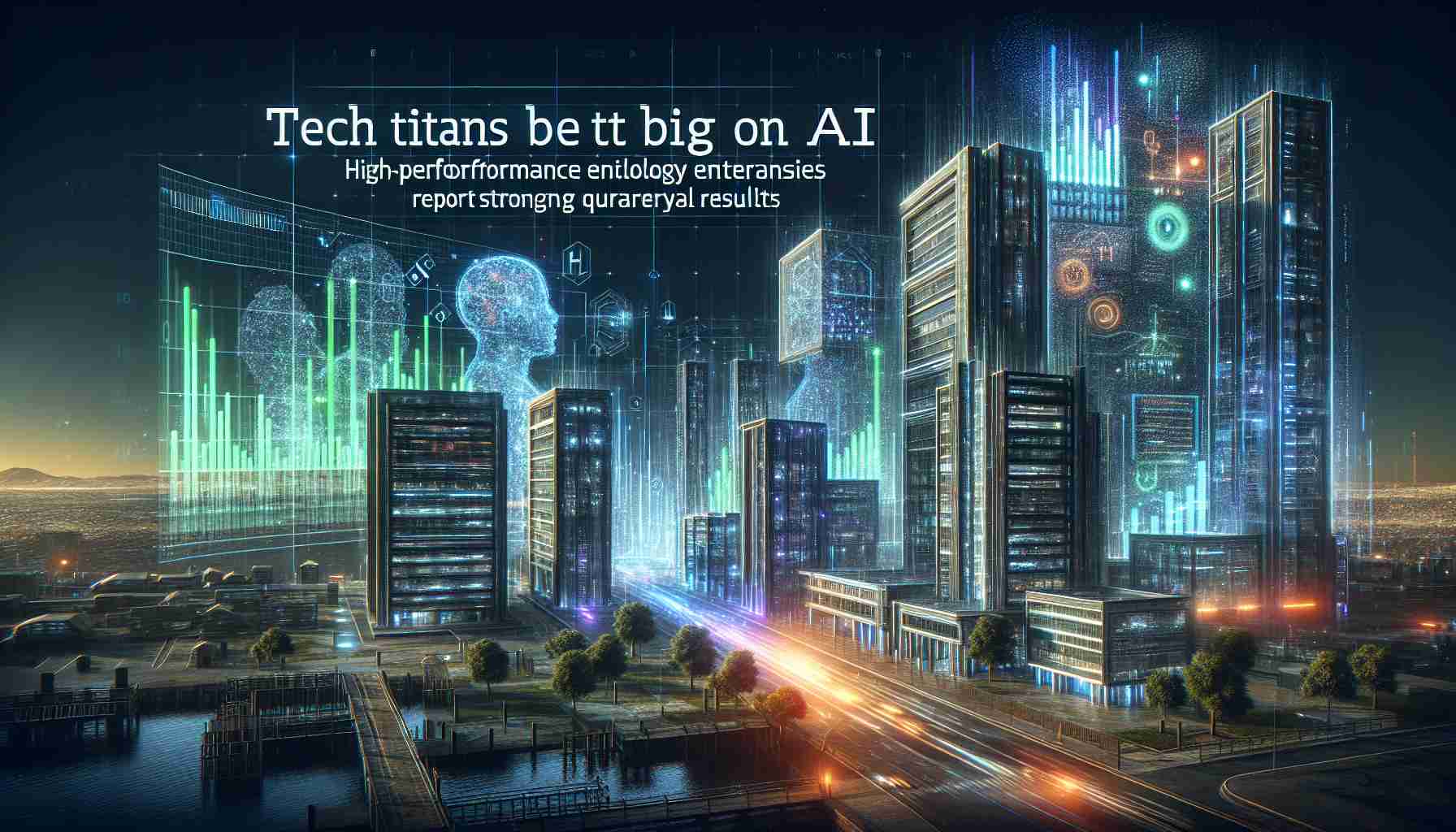CEOs of tech behemoths Alphabet and Microsoft are both showcasing confidence in the burgeoning field of generative AI, with Alphabet’s Sundar Pichai expressing certainty in monetizing AI tools and Microsoft’s Satya Nadella already seeing the fruits of such endeavors. The latest quarterly earnings released on April 25 indicate that both companies have surpassed expectations, boasting climbing revenues and profits, sending their stock prices soaring. Alphabet particularly drew attention by announcing a stock buyback and its inaugural dividend, further boosting its shares.
Despite hitting these highs, it’s the future stakes in AI technology, estimated to be worth tens of billions in the coming years, that are generating fervent conversations among investors and consumers. With AI at the forefront, the short-term destinies of Alphabet and Microsoft are tied to their contrasting approaches to generative AI projects.
During a financial analyst meeting, Nadella highlighted the success of Microsoft’s AI-powered tools such as GitHub Copilot, which has seen a surge to 1.8 million users, indicating a 1.3 million increase over the previous quarter. He further boasted that a majority of ‘Fortune 500’ companies utilise Microsoft’s AI services, including Azure Cloud’s integration with OpenAI software, which also powers the Copilot feature in Microsoft Office 365.
Alphabet’s Pichai, on the other hand, shared proposed AI milestones in a separate meeting with analysts. He revealed that over a million developers are employing Google Cloud’s generative AI tools and that a significant portion of AI startups backed by investors are using Google Cloud. Pichai didn’t disclose the uptake of the newly unveiled $20 per month ‘Gemini Advanced’ subscription plan, which grants access to Google’s premier AI chatbot, nor did he share revenue specifics from experiments in summarizing search results with AI – an area that could reshape the nature of Google’s advertisement revenue.
With cloud services being Microsoft’s largest department and witnessing an increase in revenue, Microsoft’s total revenue reached $61.9 billion, a 17% increase. Nadella further claimed gains in cloud market share, with large cloud deals showing significant growth. Meanwhile, Alphabet posted a 15% increase in revenue to approximately $80.5 billion. Both CEOs portrayed optimism despite the high costs associated with more advanced AI systems, hinting at a future where AI integration becomes a norm rather than an exception.
In the end, Alphabet and Microsoft’s most recent fiscal reports suggest that while Microsoft may be taking a lead in AI monetization, both companies are enjoying a considerable amount of leeway from shareholders, with stock prices nearing all-time highs. Future developments in user adoption of Copilot and the success of Gemini and Google Search could dictate the direction of their stock prices.
Important Questions & Answers:
1. What are the key differences in AI strategy between Alphabet and Microsoft?
Alphabet is focusing on implementing AI across Google services, including Google Cloud and search capabilities, potentially changing the ad revenue landscape. Microsoft, meanwhile, has integrated AI in its cloud services, with Azure Cloud’s collaboration with OpenAI and AI features in Microsoft 365.
2. What are the potential benefits of AI technology for these companies?
AI technology has the potential to significantly improve efficiency, create new revenue streams, and maintain a competitive edge. AI can automate tasks, help in data analysis, enhance user experience, and lead to innovative products and services.
3. What are the possible challenges or controversies associated with AI?
AI’s ethical implications, potential job displacement, privacy concerns, and the management of ‘intelligent’ algorithms that could exhibit biased behavior present challenges. Additionally, the carbon footprint of training large AI models is a growing concern.
Advantages and Disadvantages:
Advantages:
– Automation of repetitive tasks
– Creation of new products and services
– Increased efficiency and decision-making speed
– Potential to transform industries and boost economic growth
Disadvantages:
– Job displacement risks for certain sectors
– Ethical and privacy concerns surrounding AI use and data management
– The environmental impact of powering and cooling large AI systems
– Risk of reinforcing biases if algorithms are trained on skewed datasets
In the landscape of AI development, companies like Alphabet and Microsoft continue to assert their dominance, leveraging their extensive resources and data to innovate and shape the future of technology. Tech Titans wagering on AI as a central aspect of their growth strategies is a trend that is expected to continue as AI technology evolves and becomes further integrated into products and services across the global market.
The source of the article is from the blog coletivometranca.com.br

